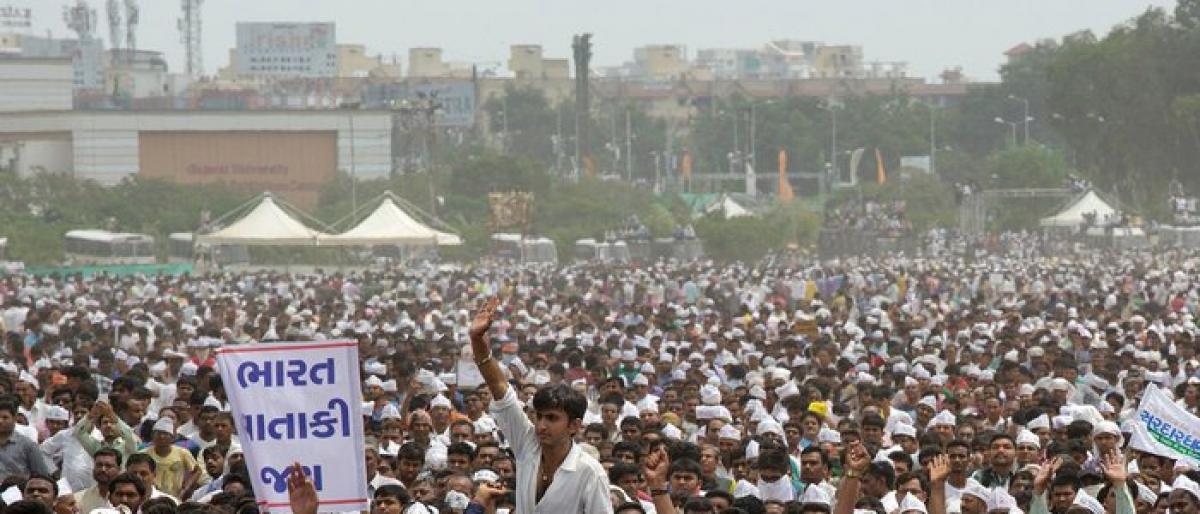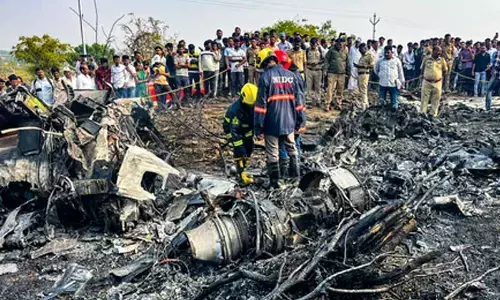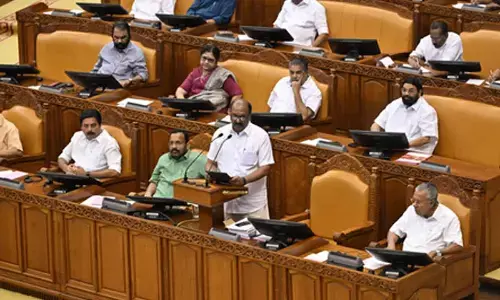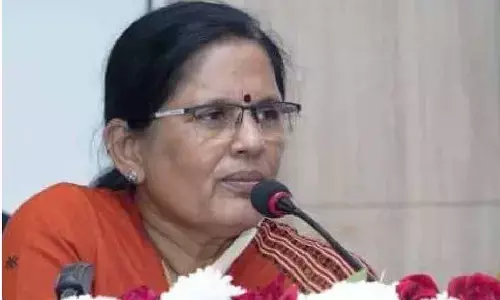Clamouring to be heard

Does chaos really lead to a prudent knowledge, as Santos says? What does this knowledge tell us? We have seen it in Gujarat in the revolt of Patidars against the government of the day.
Does chaos really lead to a prudent knowledge, as Santos says? What does this knowledge tell us? We have seen it in Gujarat in the revolt of Patidars against the government of the day. We have seen the same in the case of Gujjars in Rajasthan and of Kapus in Andhra Pradesh. It has also been evident in the Jat movement in the northern belt and that of the farmers in Madhya Pradesh or in Maharashtra.
The rejoice of the Muslim women in the country over the triple talaq tells us the same story. Similarly, now the dalits taking to the streets in Maharashtra months after Marathas hitting the streets also, perhaps, should teach us something anew. But is the hegemonic elite listening to those voices?
Unleashing the police is easier on such groups converging on the streets or protesting over injustices and deprivation. If the powers-that-be care to acknowledge their voices and feelings, the country could embark on a healthy democratic development with all segments getting their rightful share of talk-time. However, if the ruling party disallows the same, there would be greater chaos in the country.
Yes, such situations would be encashed by the politicians or even by those with not so clean intentions (including those who come from such fringes). Bringing politics to protests without dissecting the root of the cause – in our country's context of exploitation, oppression, marginalisation and casteism and gender discrimination – will not help soothe the nerves of the people seeking attention. Whether one needs to call these protesting sections subaltern, the other, or simply 'discriminated,' the truth does not change.
These are all women, dalits, rural, tribal and immigrant labour, minorities and the urban fringe groups in search of livelihoods, and they fall under the category. And as the aspirations grow and growing technology bridges the space between the regions and villages and cities, exploitation of all forms becomes exposed. The Indian society's fault lines have only grown in the recent times. This is leading to a clash of its civilisations and diverse cultures whether one likes it or not.
The past three years have only added to the conundrum further with the resurgence of the cultural imperialism. Now 'the other' is not only eyeing the ruling classes with contempt but are also eyeing the pie (of power) as a way out to seek redressal of their grievances. In addition to the cultural imperialism which is messing up the country's peace, another unwarranted development is the Opposition's opportunistic politics.
Being unable to counter the Hindutva agenda, it is quickly darting from one base to another and to the home plate to score its brownie points to counter the ruling forces. But, neither allow 'the other' voices to be heard. They prefer to talk about those deprived because they think they know better. They attempt to tell him his story in a new way. In essence, rewriting 'them,' these politicos presume they are writing anew and hence they are not just the authors but the authority too. Unless 'the other' gets his say in policy making there shall be no resolution.
















